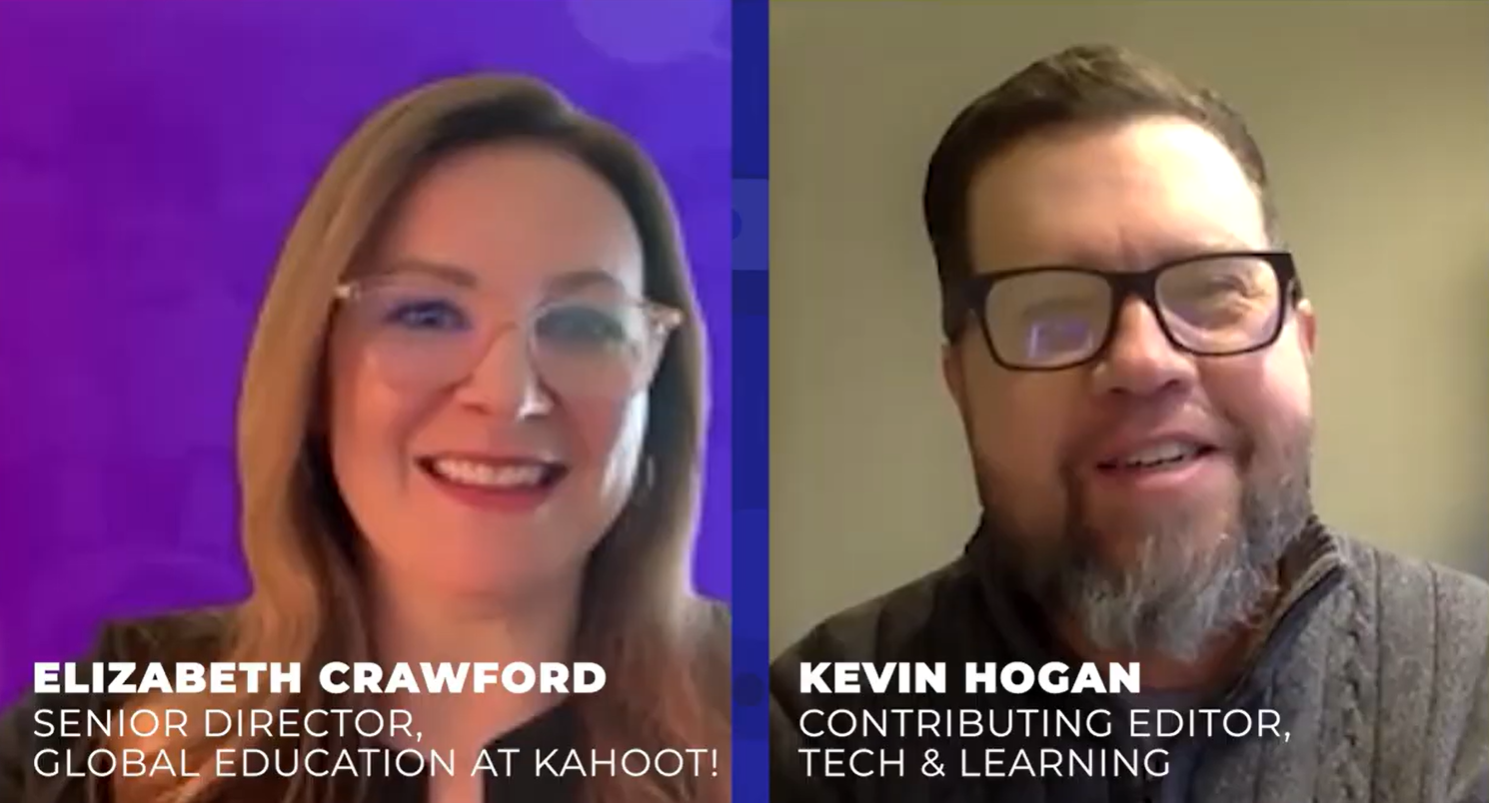The Back Page(14)
Tools and ideas to transform education. Sign up below.
You are now subscribed
Your newsletter sign-up was successful
Q&A with Ian Jukes
Past:
Teacher, administrator, writer, consultant, and university instructor.
Current: Director, InfoSavvy; keynote speaker, author, editor, and publisher.
Recent: Net Savvy: Building Information Literacy for the Classroom, co-authored with Anita Dosaj and Bruce Macdonald, and Windows on the Future, co-authored with Ted McCain. (Corwin Press)
Next: Windows on the Future, 2nd edition and Understanding Digital Kids: Teaching and Learning in the New Digital Landscape.
Honors: Named one of the top ten educational speakers in America by Consulting Magazine Online.
Q: You're with the InfoSavvy Group. What does it mean to be "InfoSavvy"?
Tools and ideas to transform education. Sign up below.
A: Being Infosavvy means being able to use information processing skills to ask good questions and access relevant data, and then analyze and authenticate it so it can be transformed into usable knowledge to solve real world problems. I want students to be more than technologically and informationally literate; I want them to be fluent-to focus on process over mechanics. I believe this fluency is every bit as important to learning as reading, writing, science, and mathematics.
Q: When did you realize that you were completely passionate about education reform?
A: I didn't enjoy school because I was disengaged and "different." In grade 5, my parents were actually called into the principal's office and told that the school wasn't sure whether to skip me to grade 7 or have me repeat grade 5. That says it all. As a teacher, I chose to spend my time with my students in the classroom, in the gym, and on the playground, doing everything I could to ensure that they didn't have the same experience.
Q: A lot of people have called you an education futurist. How do you come up with your predictions?
A: Well, IBM's Harvey Long used to say that those who live by the crystal ball shall eat crushed glass. Inevitably, predictions are wrong. To overcome this, I work VERY hard to keep up with emergent trends. I read 25-30 books a year. And, as part of the process of creating the Committed Sardine Blog, I typically read 400 to 500 online articles weekly. I annotate and transcribe everything that I find interesting into electronic files. I also carry on extensive, daily correspondence with Sardines around the world.
Q: How are today's students different from previous generations, and what does that mean for educators?
A: Any educator worth their salt knows that today's kids are fundamentally different from the way we were when we were kids. These differences have everything to do with the fact that many of today's kids, part and parcel of the Instant Messenger (IM) Generation, are growing up in a global, digitally networked landscape filled with innovative, interactive, and powerful communication technologies. They're what Marc Prensky calls "digital natives"-they operate at "twitch speed."
The latest neuroscientific and psychological research tells us that intense and frequent digital experiences are having a significant impact on cognitive processes, particularly the way today's students view and use information. This emerging research holds profound implications in the new digital landscape of teaching and learning. It's critical that we reconcile these new developments with current instructional practices.
Back in Time
Issue: January-February 1981
Classroom Computer News (Technology & Learning's first official name)
"The Compleat Grantsman: a Professional's Guide to Getting Funded."
"A Pocket Full of Miracles." Excerpt: "One might well wonder what learning might be like with students carrying computers around in their pockets or backpacks..."
"Combating Computer Anxiety in the Administrative Office."
"Word Processing for Your PET."
News and Issues:
Textbook publishers say they will "provide better software when teachers write it."
Texas Instruments' Speak and Spell and Dataman are among only four games selected from hundreds as having "some potential educational value."
Apple launches Apple Seed, a computer literacy program which includes a BASIC tutorial and a directory of Apple software.
MicroSIFT debuts — a new software clearinghouse dedicated to making sure software is "as dazzling as the hardware."
Random House becomes the first Authorized Educational Distributor for Radio Shack's TRS-80 products.
Meanwhile:
TIME declares Ronald Reagan its 1980 Person of the Year.
Television series "Dynasty," with Joan Collins, premieres on ABC.
Philippine President Ferdinand Marcos declares an end to martial law.
